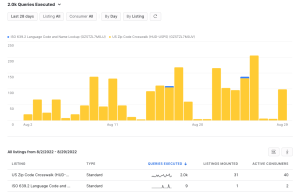
Emerging technologies continue to reshape the world, and one of the most transformative forces today is artificial intelligence (AI)-driven automation. This revolutionary technology is not just a buzzword but a reality impacting various industries. From healthcare to finance, and from manufacturing to retail, AI-driven automation is setting new benchmarks for efficiency, accuracy, and productivity.
The Growth of AI-Driven Automation
The integration of AI in automation has seen exponential growth over the past few years. According to a report by McKinsey, AI could potentially deliver up to $13 trillion in additional global economic activity by 2030, increasing global GDP by about 1.2% annually. This statistic underscores the profound impact AI is set to have on the global economy.
In 2023 alone, the AI software market size was valued at $50 billion, with expectations to reach $126 billion by 2025. This rapid growth is driven by the increasing adoption of AI across different sectors, aiming to enhance operational efficiencies and provide personalized experiences.
Key Industries Embracing AI-Driven Automation
Healthcare
The healthcare industry is one of the significant beneficiaries of AI-driven automation. AI-powered diagnostic tools can analyze medical images with a precision that rivals human experts. For example, AI algorithms are now capable of detecting early signs of diseases like cancer from radiology images, sometimes even before symptoms manifest in patients. According to a study published in The Lancet Digital Health, AI systems have shown an average diagnostic accuracy of 87%, compared to 86% for healthcare professionals.
Finance

In the financial sector, AI-driven automation is revolutionizing fraud detection and risk management. Machine learning algorithms can analyze vast amounts of transaction data in real-time, identifying fraudulent activities that would be impossible for humans to detect manually. Additionally, AI-powered chatbots and robo-advisors are enhancing customer service and providing personalized financial advice, thereby improving customer satisfaction and loyalty.
Manufacturing
Manufacturing is another industry where AI-driven automation is making significant inroads. Smart factories, equipped with AI-driven robots and IoT devices, can monitor and optimize production processes, reducing downtime and increasing efficiency. According to the International Federation of Robotics (IFR), the number of industrial robots deployed worldwide reached approximately 3 million units in 2021, indicating a robust trend towards automation in manufacturing.
The Role of Data in AI-Driven Automation
The success of AI-driven automation heavily relies on the quality and quantity of data available. Big data analytics plays a crucial role in training AI models to perform complex tasks with high accuracy. Companies are increasingly investing in data centers and datacenter proxy servers to manage and secure the vast amounts of data required for AI applications. A datacenter proxy server can provide businesses with the necessary resources to handle large-scale data processing, ensuring that their AI systems operate smoothly and efficiently.
Challenges and Future Prospects
Despite its numerous benefits, AI-driven automation also presents challenges. One of the primary concerns is the potential job displacement due to increased automation. A report by the World Economic Forum estimates that by 2025, automation will displace about 85 million jobs, but it will also create 97 million new jobs, emphasizing the need for reskilling and upskilling the workforce.
Moreover, ethical considerations around AI, such as bias in AI algorithms and data privacy issues, are critical challenges that need to be addressed. Ensuring that AI systems are transparent, fair, and secure is paramount for gaining public trust and maximizing the positive impact of AI-driven automation.
AI-driven automation is undoubtedly one of the most transformative emerging technologies of our time. Its ability to enhance efficiency, accuracy, and productivity across various industries is driving significant economic growth. However, as we embrace this technology, it is crucial to address the associated challenges and ensure that the benefits are equitably distributed. By investing in robust data management solutions, such as datacenter proxy servers, and focusing on ethical AI practices, we can pave the way for a future where AI-driven automation not only transforms industries but also improves the quality of life for all.
By Daniel Price



